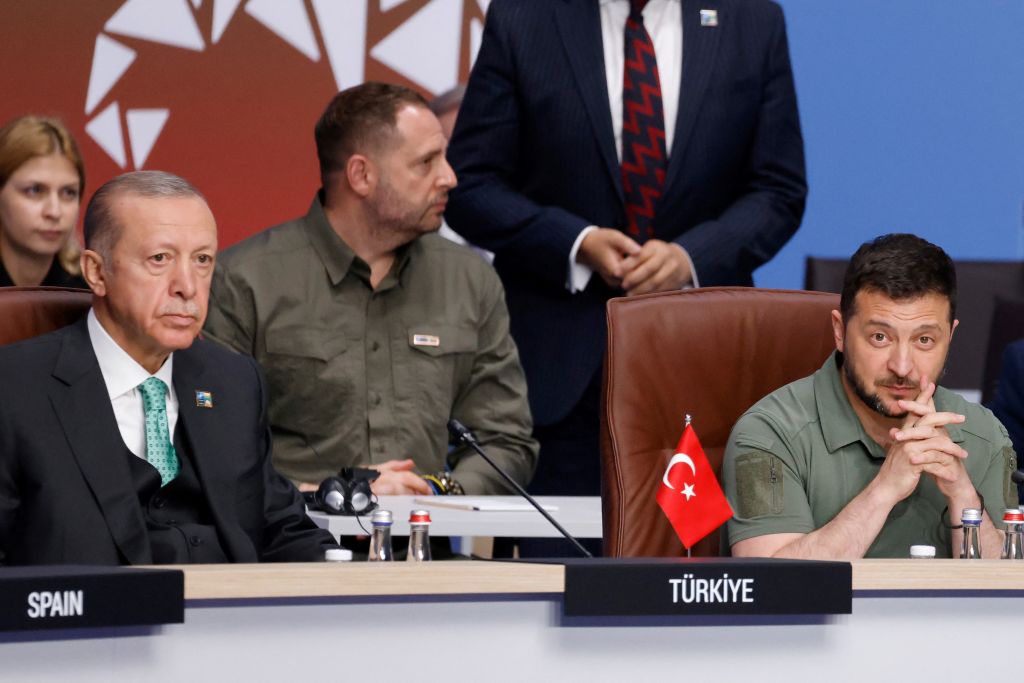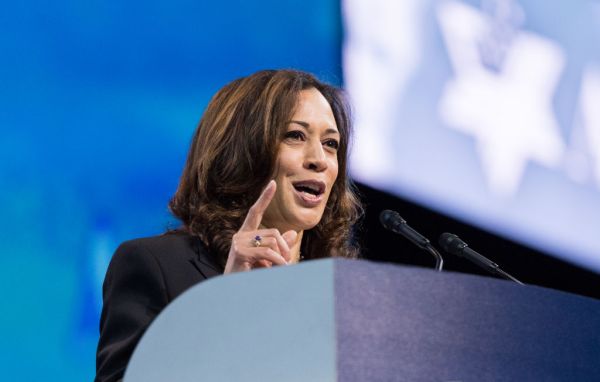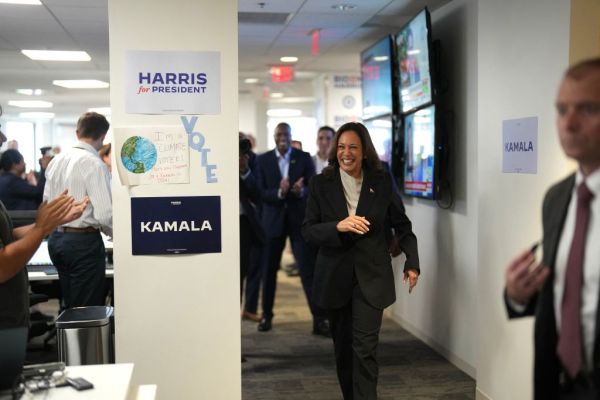NATO leaders convened in Vilnius, Lithuania, this week to discuss the military alliance’s future amid an ongoing ground war in Europe. The two-day deliberations ultimately put one prospective ally, Sweden, on track to become NATO’s 32nd member but left another, Ukraine, sorely disappointed.
Turkish President Recep Tayyip Erdoğan abruptly dropped his longstanding opposition to Sweden’s NATO accession on Monday, promising to work with his country’s lawmakers to approve the Nordic country’s membership. The proposal is expected to come before Turkey’s parliament when lawmakers reconvene after a two-month recess on October 1.
The breakthrough—which followed a meeting between Erdoğan, Swedish Prime Minister Ulf Kristersson, and NATO Secretary-General Jens Stoltenberg—came on the eve of the summit, giving alliance members an early victory and projecting transatlantic unity in the face of Russian aggression. “This is a historic day,” said Stoltenberg. Sweden’s addition to NATO sends “a very strong message to [Russian President Vladimir] Putin that he’s not going to outlast us, he’s not going to outlast Ukraine, and the sooner he ends this war of aggression the better,” Secretary of State Antony Blinken declared from Vilnius.
It was a welcome development—and a surprising one.
Sweden and Finland ended their longtime policy of non-alignment after Russia invaded Ukraine, submitting joint applications to NATO in May 2022. Finland became the alliance’s 31st member in April, but Turkish opposition to Sweden’s membership persisted amid Erdoğan’s insistence that Stockholm turned a blind eye to Kurdish terrorism emanating from Swedish soil. “How can Turkey trust a country where terrorists are running wild?” he asked from Istanbul just last week. “How can a nation that fails to distance itself from terrorism contribute to NATO?”
Sweden has tried to assuage Erdoğan’s concerns in recent months, implementing new counterterrorism initiatives and pledging not to support members of the Kurdish militias with which Turkey has fought a decadeslong war. Last week, Swedish authorities sentenced a Kurdish man to four-and-a-half years in prison for financing terrorism. In exchange for Turkey’s greenlight, the two countries will reportedly meet annually to coordinate on counterterrorism efforts. Stoltenberg also pledged to appoint a NATO counterterrorism coordinator, per Turkey’s longstanding request.
Efforts by the U.S. likely tipped the scales. After a series of high-level meetings between Turkish and American officials in recent weeks, Erdoğan and President Joe Biden held a closed-door meeting in Vilnius on Tuesday—one of Biden’s two one-on-one meetings of the trip. The leaders reportedly discussed Sweden’s NATO accession, as well as plans for enhanced economic and defense cooperation between their two countries.
The Biden administration also signaled progress on a key demand of Ankara’s—approval for its purchase of U.S.-made F-16 fighter jets. Speaking to reporters from the summit on Tuesday, U.S. National Security Adviser Jake Sullivan said that the U.S. plans to move forward with Turkey’s bid to buy 40 F-16s and nearly 80 kits to upgrade its existing fleet. The deal has long faced resistance from Congress, particularly Senate Foreign Relations Committee Chairman Bob Menendez, who is reportedly in talks with administration officials about authorizing the sale.
Turkey’s approval of Sweden’s NATO membership, though in many ways transactional, may also signal a broader shift to the West. Erdoğan has taken several unlikely steps toward patching up relations with the U.S. and Europe since his reelection in May, most recently vowing to provide a military escort to Ukrainian grain ships across the Black Sea if Russia doesn’t renew the deal allowing for their safe passage. He also met with Volodymyr Zelensky last week, allowing the Ukrainian president to return home with five Ukrainian military commanders who were being held in Turkey after Russia released them in a prisoner exchange last year.
“All of this suggests he read the tea leaves about the Prigozhin rebellion and decided that Putin was in a slightly weaker state and that this was a good moment for him to signal a greater openness to the West,” says Eric Edelman, former U.S. ambassador to Turkey, Finland, and under secretary of defense for policy, referring to Wagner head’s short-lived mutiny in Russia last month. “This is all in keeping with what looks like a larger tactical shift, at least for the moment, to the West.”
Erdoğan also has economic incentives to make nice with the West, as Turkey tries to repair its battered economy. Baked into the Sweden deal are steps toward an enhanced customs union with Europe, which accounts for some 50 percent of Turkey’s trade. European Union Council President Charles Michel vowed to “re-energize” Turkish-EU relations following a meeting with Erdoğan Monday.
“It’s clear to [Erdoğan] that certainly a relationship with Russia, and arguably also a relationship with the Gulf Arabs, cannot replace from an economic point of view the rebuilding of confidence of Western markets in Turkey,” Jonathan Spyer, research director of the Middle East Forum, tells The Dispatch. “The Sweden greenlight is one part of that broader picture.”
Alliance members found new unity on the issue of Sweden’s NATO bid, but they were divided on Ukraine’s eventual acceptance into the alliance. The frontline countries of Poland and the Baltic states pushed for a clear path to Ukraine’s NATO membership, but Germany and the United States were more restrained. “I don’t think it’s ready for membership in NATO,” Biden said in an interview with CNN on Sunday, citing unmet “qualifications” for joining the alliance from “democratization to a whole range of other issues.”
The discord made its way into the summit’s 90-paragraph communiqué, which affirmed Ukraine’s eventual membership in NATO but failed to provide a definitive timeline. “We fully support Ukraine’s right to choose its own security arrangements. Ukraine’s future is in NATO,” the document read, adding that reforms need to be made before an invitation would be extended.
It wasn’t the sort of reception the Ukrainians were hoping for. Shortly before the communiqué was released to the public, Zelensky pushed back on its contents, writing on Twitter that the absence of a timeline for Ukraine’s eventual membership was “absurd and unprecedented.”
“It seems there is no readiness neither to invite Ukraine to NATO nor to make it a member of the Alliance. This means that a window of opportunity is being left to bargain Ukraine’s membership in NATO in negotiations with Russia,” he added. “And for Russia, this means motivation to continue its terror. Uncertainty is weakness.”
“I can tell you, having done a lot of those communiqués, it definitely showed that there was a lot of controversy and this was the best they were able to come up with, I guess. So that has roiled the waters here,” Jim Townsend, former U.S. deputy assistant secretary of defense for Europe and NATO, says from Vilnius. “There’s great disappointment and frustration on all sides.”
The alliance’s noncommittal approach was all the more disheartening given Ukraine’s history with NATO. During a 2008 summit in Bucharest, Romania, former President George W. Bush and other NATO leaders backed Ukraine and Georgia’s eventual NATO membership without laying out a clear path to their accession. Experts say the move put the countries firmly in the transatlantic camp in the eyes of Putin, but without extending to them the security guarantees that membership provides. A few months later, Putin began his invasion of Georgia. After that was met with a lukewarm response by the alliance, he continued his expansionism into Crimea and eastern Ukraine.
“The argument about Ukrainian NATO membership is basically an extension of the same issue the U.S. has been grappling with since the early ‘90s: Are the countries that emerged from the wreckage of the Soviet and Russian empires part of our family, or are they simply temporarily independent to be swallowed by up Moscow when Moscow’s ready to do so? That’s a pretty big question,” Daniel Fried, a distinguished fellow at the Atlantic Council and former U.S. ambassador to Poland, tells The Dispatch. “The U.S., starting 30 years ago, led NATO to embrace the newly emerging democracies. This time, the U.S. was behind other countries.”
To fill the gap between committing to Ukraine’s eventual membership and actually seeing it through, Fried adds, NATO needs to commit to Kyiv’s long-term defense amid the ongoing war. To that end, the summit appears to have been a success. After a meeting with Biden to close the summit on Wednesday, Zelensky said the U.S. and other allies’ promises of additional weapons systems will bring Ukraine one step closer to victory.
“The meeting was at least twice as long as planned, and it was as meaningful as it needed to be,” Zelensky said. “Long-term support. Weapons. Politics. NATO. We clearly see how to end this war with our common victory.”









Please note that we at The Dispatch hold ourselves, our work, and our commenters to a higher standard than other places on the internet. We welcome comments that foster genuine debate or discussion—including comments critical of us or our work—but responses that include ad hominem attacks on fellow Dispatch members or are intended to stoke fear and anger may be moderated.